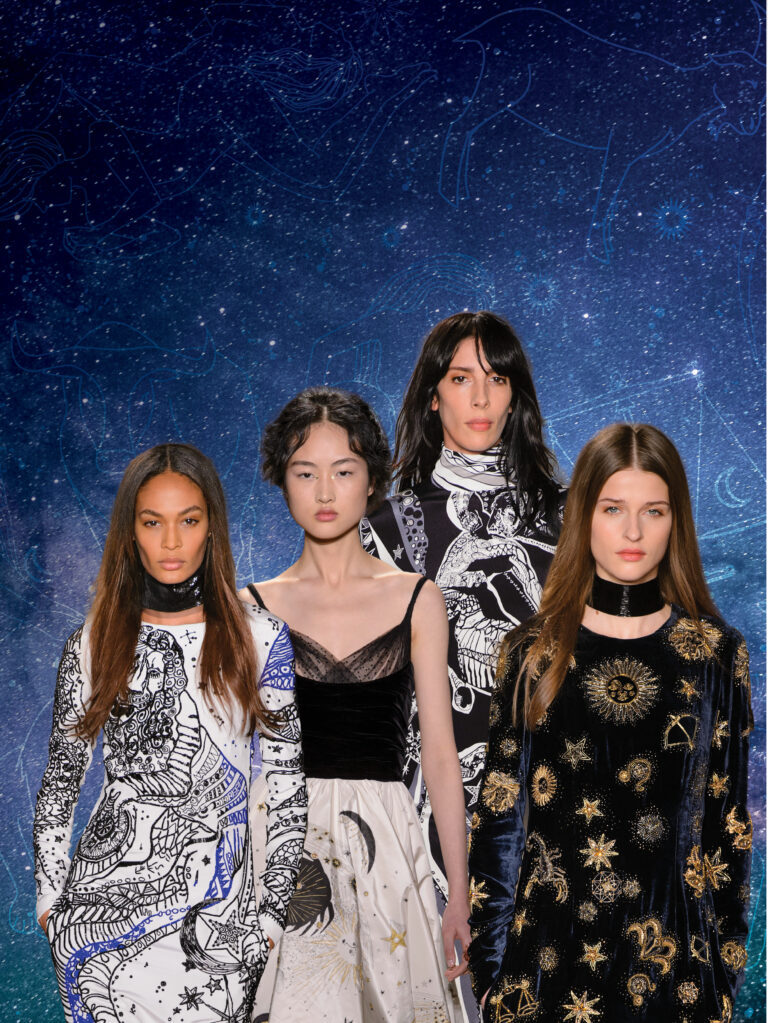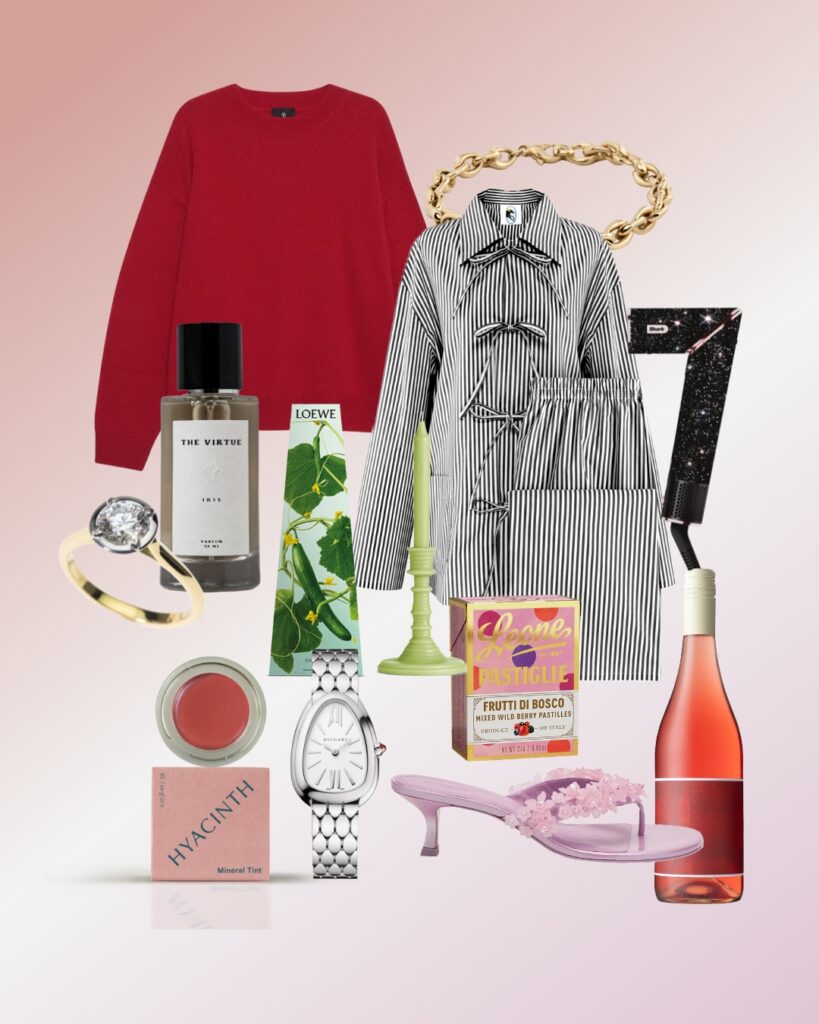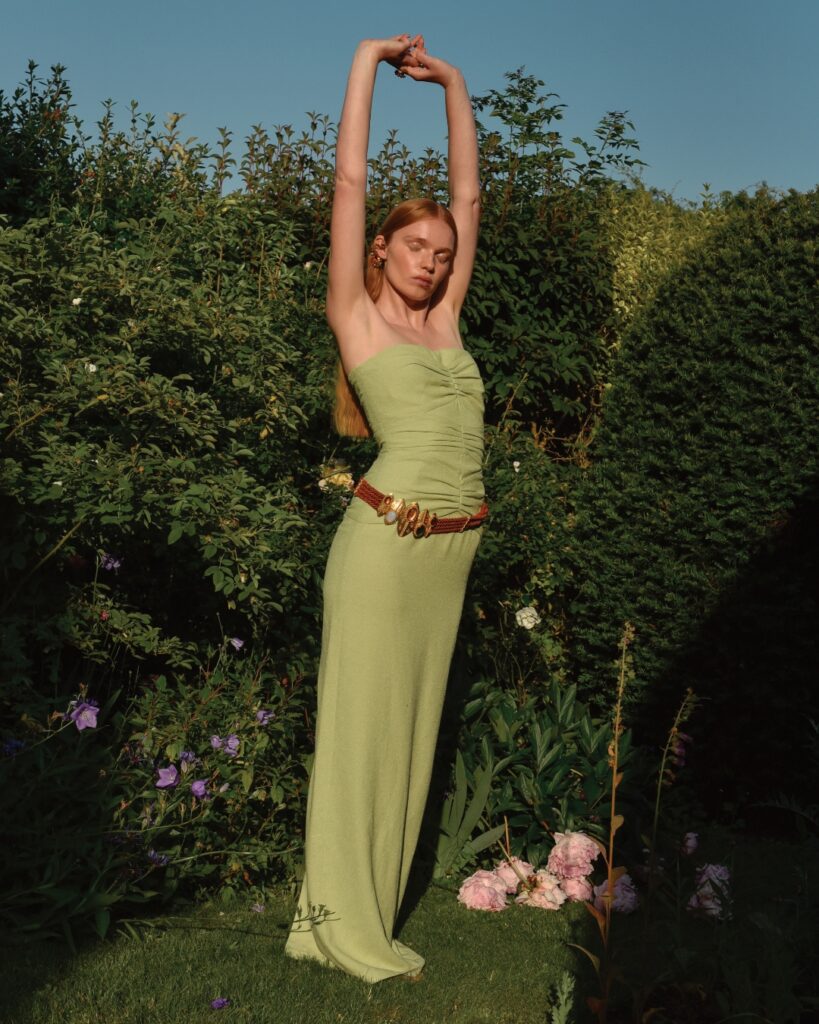
In an age in which science and technology demystify our everyday lives, it seems oddly paradoxical to hear that astrology has made a comeback — yet what a comeback it’s been. Astrology is cementing itself everywhere you look. Kanye raps that he’s the “ultimate Gemini”, horoscopes are trending on TikTok, and Facebook always seems to crash when Mercury’s in retrograde — whatever that really means. So what’s with the recent astrology boom, and why is it happening now?
The age of astrotherapy
In this day and age, most people know their star sign and associated personality traits (the sensitive Cancerian, the attention-loving Leo…). Astrology has great appeal as a tool for self-reflection, providing insight into our personalities, behaviours, relationships and feelings. And regardless of how these observations were formulated, the words may ring true and be helpful in navigating the ups and downs synonymous with the human condition.
Astrology reader, 30-year-old Hannah Crerar, explains her initial pull towards the subject. “My auntie loved to share bits and pieces with me when I was a young girl, then in my early twenties, I received an astrology reading that blew my mind. I then began to study the stars myself.
“I’ve always loved to observe people and understand their characteristics, and astrology provides an incredible window into someone’s personal make-up,” she continues. “Although scientific explanations can be useful, the beauty of astrology is that it speaks to the heart of the matter. A reading will resonate emotionally and energetically, more so than logically. Some things just need to be felt to be understood. One client who received a reading recently shared that it sparked a major spiritual awakening that not only assisted her on a difficult journey with her health but also gave her the confidence to launch a whole new career based on the principles of astrology and human design.”
If this all feels a little too woo-woo to you, stick with us. Astrology has been around for more than 2400 years. Originating in Babylon, it was used to predict our behaviours, emotions and life trajectories based on the placement of celestial bodies. Horoscopes took off in Western newspapers in the 1930s, in the wake of the 1929 Wall Street crash and the Great Depression, a time of economic and social uncertainty, when many felt the need to seek reassurance and stability. Today, it’s booming, and with many of us checking our horoscopes as regularly as we check the weather forecast, it’s no surprise that a 2018 report by the Pew Research Center found that 28 percent of American adults expressed a belief in astrology.
But what’s behind this appetite for astrology? Well, according to survey data from the American Psychological Association, Millennials and Gen Z are the two most stressed-out generations. It’s therefore easy to see why people in these groups are turning to astrology as a way of coping with the stresses and uncertainties of modern life — whether that’s personal hardships or events primarily outside of our control, like climate change and the Covid-19 pandemic. Intriguingly, a study conducted in 1982 by GA Tyson examined the characteristics of people who consulted astrologers and found that in many cases, it was a response to stresses faced regarding social roles and relationships.
Another factor contributing to the modern rise in seeking guidance from the stars may be that Western society is increasingly turning its back on organised religion. In the 2018 New Zealand census, 48.2 percent of respondents identified as not having a religion. But that isn’t to say we don’t still yearn for a deeper spiritual element in our lives, and this is where astrology fits the bill. It provides a means of self-discovery without requiring individuals to adopt a strict moral code, make drastic lifestyle changes or sacrifice material comforts. And, importantly, astrology is a practice of convenience — you can turn to it as much or as little as you please.

Astrology rising
Astrology is everywhere you look. From Marie Clare’s ‘The Best Star Sign Accessories For Zodiac-Obsessed Women’, to Vogue’s ‘What I’ve Learned From Dating Every Sign of the Zodiac’, it seems like the stars have guidance for more and more aspects of our everyday lives, but in keeping with the times, it’s digestible and on point. Further, modern astrology doesn’t always take itself seriously. It’s not preachy or overbearing — instead, it’s often highly relatable and witty. Take the Instagram meme account @notallgeminis, which provides commentary to its 602,000 followers on astrological phases (like Libra season, a time to indulge in overpriced cocktails) and trending meme formats you can’t help but joke about with like-minded friends (such as the Aries season starter pack).
For those who want to dive a little deeper into the realm of stargazing, your personal astrologer is just a tap away, available 24/7 on your smartphone. The popular The Pattern app boasts 15 million users, and provides you with personalised readings based on your time and place of birth in an easy-to-consume format, like your very own on-call therapist. There’s also the Co-Star app that’s powered by NASA data to offer its users unique astrological insights, and has recently proven that personalised astrology is big business by raising $15 million from venture capital.
Brands have caught on too, commercialising our desire to identify with our star signs. Courtesy of the Swarovski Zodiac II collection, you can wear your sign around your neck. Or you can write in your zodiac-themed notebook by An Organised Life, which comes prefaced with a message unique to your star sign by Natalia Benson, an LA-based astrologer with a 57,000-strong following on Instagram.
This month, New Zealand lingerie brand Videris debuted a collection that pairs colour theory with each of the 12 zodiac signs, with gift-giving in mind. As Videris founder and creative director Chloé Julian explains, when we give a gift to someone based on their star sign, “we’re celebrating their uniqueness, showing intent and connecting in a meaningful way”.
Using herself as an example, Julian elaborates. “As a typical Cancerian, I can be sensitive, which is viewed both positively and negatively. But if a friend were to give me a set of Shield Black lingerie as protection against negative energies, that would make me feel that my sensitivity is accepted as a unique part of my character and something a friend wants to protect, not change.”
Dark side of the moon
It’s easy to be drawn into astrology when we see it everywhere and it brings meaning to our everyday lives. Equally, though, a belief in astrology can cause harm by leading us to attach significance to random events, or hindering us from taking responsibility for our behaviours and actions.
Sydney-based Lysn psychologist Nancy Sokarno cautions against putting too much faith in astrology. As she explains, astrology is “a self-fulfilling philosophy or a form of confirmation bias. For example, you read that your star sign is destined to save money during November. You might actually do this and believe it’s because your reading said you would.” As she puts it, “somewhere in your subconscious, you might be making these things come true with your own behaviours.”
Sokarno also cautions against using astrology as a coping mechanism. “If something horrible happens, it’s emotionally easier to hold something astrological accountable, rather than something real. This can be problematic if a person is responsible for actions that may have led to the situation in the first place.”
This is not to say that astrology will hinder our self-growth. Crerar says that “astrology can provide comfort and reassurance” as we navigate the complexities of our human experience. “An astrology chart may reflect challenges ahead, just like a weather app showing a stormy forecast,” she says. “Knowledge is power, and when you know the conditions, you can better prepare for the occasion. That doesn’t mean you hide inside all day — it just means you pack a raincoat.”
As Sokarno says, “the legitimacy of astrology really depends on how it’s interpreted and practised. Perhaps it allows someone to adopt a more positive mindset in stressful times, and that’s important. However, building a better or more positive life will take a lot more than relying on the zodiac for answers.”
Ultimately, modern astrology is not a replacement for therapy or medication, nor is it a science or religion. However, there’s much to be said about astrology’s ability to provide comfort — and a little internet humour. For many, astrology just feels right. And at the end of the day, perhaps that’s all that really matters.
This article was originally published in Fashion Quarterly summer 2022.










